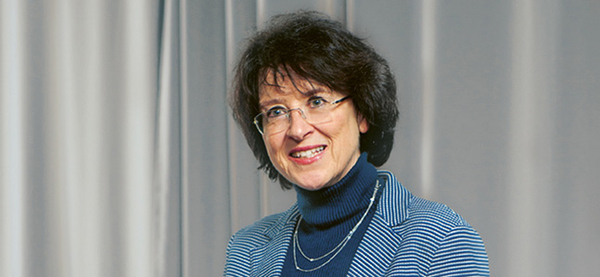“The world needs HSS now more than ever”

Historian and Research Council member Madeleine Herren-Oesch believes there is a danger that society and politicians are moving away from evidence-based action. To counter this risk, she advocates strengthening the humanities and social sciences (HSS) and creating an overall research policy for Switzerland.
Ms Herren-Oesch, the EU sets aside a lot of money for research funding. Doesnʼt this provide an interesting funding source for researchers in the humanities and social sciences?
For a long time, EU research funding favoured technological subjects, and while HSS took over the task of assessing the sociopolitical impact of technology, they did not define the key questions or shape how research was designed. The weak position of the HSS at European level is a result of this and is therefore a structural problem.
The SNSF is urging scholars working in the humanities and social sciences in Switzerland to apply for more funding from the European Research Council...
...This is an important message! And in order to support this, women whose applications are rejected by the ERC in the second round may submit their projects to the SNSF under simplified conditions. Applying to the ERC involves a lot of time-consuming administrative work, but ERC grants are important and are supported by the SNSF. I am confident that there are better times ahead for HSS. The 21st century world needs HSS more than ever.
A historian with many interests
Madeleine Herren-Oesch is a professor of modern and contemporary history, director of the Institute for European Global Studies, Basel (a research institute of the University of Basel), and a member of the Research Council (Humanities and Social Sciences division) of the SNSF. She has a particular interest in the global history of Europe, European expansion and integration, transnational movements, and the methodology and theories of historiography.
Does EU research funding recognise this?
I hope so. The realisation that HSS is not the problem, but in fact offers solutions for social problems, is gradually gaining ground. The refugee problem, Brexit and the US election made 2016 a year when policy- and evidence-based decision-making drifted apart alarmingly. Interdisciplinary HSS research can analyse this process, help people to understand the need for an educated and globally integrated Europe, and critically reflect on how diversity is handled.
What is the SNSFʼs role in this?
Its scope for action is determined by Switzerland’s relationship with the EU. That is why Switzerland as a centre for research should not just concentrate on EU research programmes, particularly since Europe’s global integration is becoming more of a challenge. My dream is for Switzerland to establish itself as a global academic hub. This would support research as a valuable public asset and help society to develop a global appreciation of the problems.